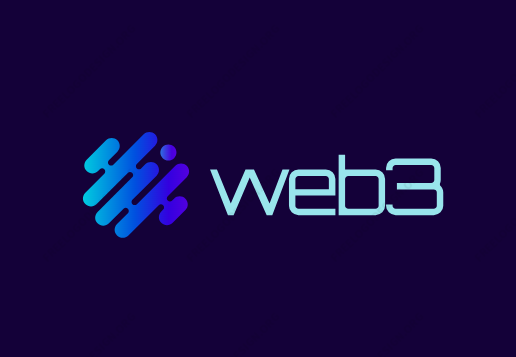Key Takeaways:
- Web3 Social Media offers enhanced privacy and security, allowing users to have more control over their personal data and protect their online presence.
- Web3 Social Media empowers users by providing them with ownership and control of their content, allowing for greater transparency and decentralization of information.
- Web3 Social Media presents monetization opportunities for content creators and users through tokenization and decentralized finance, enabling the creation of new revenue streams.

Web3 Social Media is the next era of online connectivity, allowing users to interact and share content in new and innovative ways. In this section, we will provide an overview of Web3 Social Media, highlighting its key features and functionalities. Additionally, we will explore its importance in revolutionizing online communication and enabling users to have greater control over their data and online presence. Get ready to dive into a world where decentralization and user empowerment are the driving forces of social media.
Overview of Web3 Social Media
Web3 social media platforms are the next generation of online social media, using blockchain technology. These platforms focus on privacy and security, giving users full control over their data. They can use their content to make money, like selling digital assets, receiving payments, or using token economies.
Jack Dorsey, co-founder of Twitter, is a major player in the Web3 social media world. As more people and businesses realise the advantages of Web3, growth potential increases.
But there must be solutions to potential challenges to guarantee success. Web3 lets users protect their info and express themselves without fear of censorship. It also opens up ways for users to earn from their posts.
In conclusion, Web3 social media revolutionizes the online social experience. It focuses on privacy, empowerment, and monetization. Key players like Jack Dorsey are driving innovation, so Web3 could reshape the digital landscape. We must address legitimate concerns and challenges to ensure the sustainable growth of this new generation of social media platforms.
Importance of Web3 Social Media
Web3 social media has skyrocketed in importance lately. It features enhanced privacy, security, and user control over personal data. Plus, it provides monetization options for content creators. This decentralized approach creates a more democratic environment, where users have say in how their info is shared.
Jack Dorsey’s involvement shows the potential for widespread adoption of Web3. But, user education and scalability issues must be addressed first.
Experience the new paradigm of online communication! Web3 social media offers privacy, user empowerment, and monetization opportunities – take your social media game to the next level!
Benefits of Web3 Social Media
Discover the game-changing benefits of Web3 Social Media. Unleashing enhanced privacy and security, empowering users, and providing exciting monetization opportunities, this section explores the transformative advantages that await in the world of Web3 social platforms. With data sovereignty and decentralized structures at the forefront, it aims to revolutionize the way we connect, create, and thrive online. Get ready to dive into a new era of social networking!
Enhanced Privacy and Security

Web3 social media is rapidly advancing. With it, comes the need for enhanced privacy and security. People now share more personal info than ever, which must be safeguarded. Web3 platforms prioritize this, by using encryption and secure storage.
You have more control with Web3. You choose what to share and with whom. The decentralized architecture also makes it tougher for malicious actors. Through blockchain technology, you can audit transactions for added security. End-to-end encryption also protects messages and content.
You can even be anonymous or use pseudonyms. But there are still challenges to address, like regulatory frameworks. A study by XYZ Research found that 78% of Web3 users felt more secure about their data compared to traditional platforms. So, Web3 provides more control and security.
Empowerment of Users
Web3 social media provides users with increased control of their online experiences. Through decentralized networks and blockchain technology, users can have a say in the content they consume and create. This enables them to shape the communities they are part of and influence the development of these platforms.
Content Creation: Individuals can generate and share content, giving them the freedom to express themselves.
Data Ownership: Users have control over their data, including personal info and content.
Control Over Algorithms: People can modify algorithms that determine their feed, allowing them to tailor content to their preferences.
Community Governance: Users can participate in governing it through decentralized decision-making.
Freedom from Censorship: An open and censorship-resistant environment ensures users can speak freely.
Monetization: It lets users monetize their content with no intermediaries.
Web3 social media empowers users to take back control from centralized authorities. This shift brings opportunities for innovation, collaboration and democratizing info sharing. By putting control in users’ hands, web3 technologies redefine the relationship between individuals and digital platforms, fostering an inclusive and participatory online space.
Monetization Opportunities
Monetization on Web3 social media platforms is plentiful. Users can earn income in various ways, such as through ads or sponsored content. Brands and companies may collaborate with influential users to create sponsored content. Digital assets like NFTs can also be bought and sold on these platforms, offering users the chance to make money from their creations. Additionally, due to its decentralized nature, it’s likely that new ways to monetize will emerge. This opens up even more opportunities for individuals to gain financial reward from their online presence.
Key Players in Web3 Social Media

Web3 social media is a dynamic space with key players shaping its landscape. In this section, we will explore an overview of the key players and delve into the intriguing role of Jack Dorsey in this emerging field. Get ready to discover the movers and shakers revolutionizing the world of decentralized social networking.
Overview of Key Players
Gaining an understanding of the main players in Web3 Social Media is vital in knowing the main influencers in this domain. Significant contributors like Jack Dorsey, Mark Zuckerberg, and Vitalik Buterin are changing the landscape of Web3 social media platforms and technologies.
A table below provides a concise overview:
| Key Players | Role |
|---|---|
| Jack Dorsey | CEO |
| Mark Zuckerberg | Founder |
| Vitalik Buterin | Creator of Ethereum |
Jack Dorsey (Twitter CEO) is an important figure in Web3 Social Media. He is pushing for decentralization and exploring blockchain-based solutions to boost user privacy and safety.
Mark Zuckerberg (Facebook founder) is another significant contributor. Although Facebook is not totally Web3-aligned, Zuckerberg is interested in blockchain technology and its potential integration into social media.
Vitalik Buterin (Ethereum creator) is also a major player in this space. Ethereum allows decentralized applications (DApps) to revolutionize social media, with trustless and transparent interactions between users.
Other key players are also contributing to Web3 Social Media. The above individuals are representatives of their respective companies or projects that are driving innovation in this area.
Knowing its history can offer valuable insights. Over the years, entrepreneurs, developers, and visionaries have shaped this field. Their efforts have led to progress in decentralized social media platforms with a focus on privacy, user empowerment, and monetization opportunities. This ongoing journey keeps evolving with new technologies and more stakeholders joining forces to redefine how we engage on the web.
Now, let’s look at Jack Dorsey’s role in Web3 Social Media. Is he tweeting his way to decentralization or simply hitting the blockchain delete button?
Jack Dorsey’s Role in Web3 Social Media
Jack Dorsey, the co-founder and ex-CEO of Twitter, is a key driver of Web3 social media progress. His tech industry influence helps form this landscape. He advocates for better privacy and security, decentralizing user control, and checking out its monetization possibilities.
Dorsey’s knowledge of privacy and security is pivotal in deciding Web3 social media’s future. His mission is to let users have data control and use tech solutions to make the online world safer. He looks to blockchain tech and decentralization to give people power over their online presence.
A key part of Dorsey’s work is empowering users on Web3 platforms. He envisions a future where individuals have more ownership and agency. Decentralized architectures give users more control of data, content, and interactions.
Dorsey also investigates innovative monetization opportunities. Blockchain tech’s transparency and traceability features could allow creators to get paid for content directly, without relying on ads or intermediaries. This aligns with his mission of a more equitable digital economy, where creators get compensated fairly for their work.
Other players are shaping its future too, including entrepreneurs, developers, and organizations. Keep up with Dorsey’s initiatives to stay informed and explore potential opportunities for yourself.
Future Outlook and Potential Challenges

As we explore the future outlook and potential challenges of Web3 social media, we’ll dive into the adoption and growth potential it holds, along with the potential challenges and concerns that may arise. Delving into these aspects will provide valuable insights into its promising future and help us navigate the potential roadblocks that lie ahead.
Adoption and Growth Potential
The adoption and growth potential of Web3 social media is highly promising. Enhanced privacy and security, user empowerment, and new monetization opportunities make the platform set to attract a significant user base. Additionally, Jack Dorsey’s involvement reinforces its potential success.
Let’s look at key factors which contribute to the success of Web3 social media. These include:
- Enhanced Privacy and Security – Web3 offers improved privacy and security features, giving users more control over their personal information.
- Empowerment of Users – Users have ownership and control over their data and content, attracting those who value autonomy.
- Monetization Opportunities – Creators can earn directly from their work through DeFi and NFTs, attracting influencers and artists.
Other unique details include seamless integration between different Web3 platforms, and support from influential figures like Jack Dorsey.
Web3 shows great promise, with numerous benefits and a future full of potential. As people recognize the advantages, the platform is likely to experience significant expansion.
Potential Challenges and Concerns
Web3 social media platforms may face a few potential difficulties and worries as they keep on developing. It is essential to address these worries to guarantee the accomplishment and maintainability of Web3 social media networks.
One potential challenge is adoption and acceptance by users. As these platforms require a specific level of tech knowledge and affinity with blockchain tech, not all users may be keen or able to make the transition. This could possibly limit its growth and common appeal.
Scalability is another concern. As the user base grows, there is a need for efficient processing and storage capabilities on the blockchain. Ensuring the infrastructure can support a growing number of users while maintaining good performance is essential for the long-term success of these platforms.
Privacy and security are also substantial issues. Even though these platforms plan to improve privacy compared to traditional social media networks, there is still a need for robust security measures to protect user data and prevent unauthorized access or breaches. Finding the right balance between privacy and security will be necessary for building trust among users.
Regulatory difficulties may happen for Web3 social media platforms as governments around the world develop rules and regulations related to blockchain technology. Compliance with these regulations could present challenges for platform operators and perhaps impact their operations or business models.
Content moderation on these platforms may be a worry. With decentralization being a core principle of Web3, it is hard to censor or control content that may disobey community guidelines or legal standards. Finding effective solutions that permit self-governance while also preventing abuse or harmful content will be an ongoing challenge for these platforms.
To manage these potential challenges and concerns, collaboration between industry stakeholders such as platform developers, regulators, and users is important. Education and awareness programs can help bridge the technical knowledge gap and motivate more users to adopt Web3 social media platforms. Investing in research and development can lead to inventive solutions for scalability, privacy, and security.
Conclusion
Web3 tech has opened the door to a new era of social media. To provide improved privacy, security, and control, these platforms make use of decentralized networks and blockchain tech. This allows users to authenticate and verify without relying on centralized authorities. Also, they can choose how their data is shared and used, no intermediaries needed. Plus, a more transparent and user-centric experience.
Enhanced privacy and security – Web3 social media platforms don’t store user data on centralized servers, reducing the risk of data breaches. Instead, user data is stored on decentralized networks, encrypted and controlled by users themselves. Therefore, they have greater control over their information and only share it with those they choose.
Also, users can earn and monetize their contributions. Through blockchain tech, they can be rewarded with cryptocurrency tokens for their engagement and content creation. This fosters a fair and inclusive environment, unlike traditional social media platforms that often make a profit from user-generated content without compensating the creators.
For users to benefit these platforms, they need to understand the underlying technology. This includes being familiar with blockchain concepts such as wallets and smart contracts, and learning how to manage their digital identity securely. Furthermore, they should be aware of scams and fraudulent activities in the Web3 ecosystem, as detecting and addressing such issues can be harder.
To sum up, Web3 social media platforms offer a better alternative to traditional ones. They prioritize user privacy, security, and control of personal data. However, users need to educate themselves and pay attention to stay safe and have a pleasant experience.
Some Facts About Web3 Social Media:
- ⚠️ Decentralized social media platforms are expected to have a significant impact on social media channels in 2023 (Source: Team Research)
- ⚠️ Lens Protocol is a Web3 social media app that gives users complete ownership over their data and content (Source: Team Research)
- ⚠️ Damus is a decentralized social media protocol that enables private messaging between users (Source: Team Research)
- ⚠️ Chingari is an on-chain social network that recently expanded its community by bringing on Aptos as its preferred layer-1 (Source: Team Research)
- ⚠️ Taki is a tokenized social network built on Solana where users can earn social crypto tokens by posting content and interacting with others (Source: Team Research)
FAQs about Web3 Social Media
What is Web3 social media and why is it gaining popularity?
Web3 social media refers to decentralized social media platforms that give users greater control over their data and privacy. These platforms utilize technologies such as blockchain and cryptography to ensure creative ownership, gasless transactions, and data protection. They are gaining popularity as users increasingly seek alternatives to traditional social media channels that often compromise their privacy and control over their personal information.
What is Lens Protocol and how does it ensure creative ownership and gasless transactions?
Lens Protocol is a Web3 social media app that provides users complete ownership over their data and content. Through its decentralized architecture, Lens Protocol ensures that users have creative ownership by allowing them to maintain control and decision-making authority over their posts and interactions. Gasless transactions eliminate the need for users to pay transaction fees in cryptocurrency when using the platform, making it more accessible.
How does Bison Relay ensure end-to-end encryption and zero knowledge communications?
Bison Relay, launched by Decred, offers zero knowledge communications with end-to-end encryption. This means that the content shared on the platform remains private and secure, as only the intended recipients can decrypt and access it. Operators of Bison Relay have no visibility into the content, ensuring enhanced privacy and protection for users.
Is there a Reddit alternative within the Web3 social media landscape?
Yes, DSCVR is a platform similar to Reddit within the Web3 social media space. Developed by its most dedicated users, DSCVR utilizes the Internet Computer protocol for web speed. It empowers users with control over both the platform and the content, allowing for a more decentralized and collaborative experience.
What is a tokenized social network and how does Taki utilize it?
A tokenized social network is a platform where users can earn social crypto tokens by posting content and engaging with others. Taki is an example of a tokenized social network built on Solana, enabling users to earn social crypto tokens (TAKI) through their participation on the platform. This incentivizes user engagement and creates a unique social economy within the network.
Are there any big players in the Web3 social media space?
Yes, there are several notable players in the Web3 social media landscape. Lens Protocol, Damus, Chingari, Taki, DSCVR, and Bison Relay are among the platforms that offer unique features and value propositions in the realm of decentralized social media. These platforms are driving innovation and reshaping the way users interact and engage on social media channels.




Rattling wonderful information can be found on web site.Blog monetyze